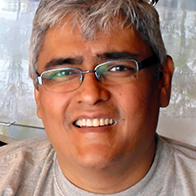Today Monday, February 9, is International Epilepsy Day.
It is the first event of its kind which has been set up to bring about awareness and recognition for an estimated 65 million people living with the condition around the globe.
The word “epilepsy” comes from the Greek word meaning “to be seized, or to be overwhelmed by surprise”.
In medical terms, it is a condition of the brain which causes a person to become unconscious for short periods, or to move in a violent and uncontrolled way.
Persons who have epilepsy tend to have recurring seizures.
Anyone can have a seizure as epilepsy is no respecter of persons.
It happens if the brain is exposed to a strong enough stimulus.
The good news, however, is that epilepsy doesn't have to be a life-long diagnosis.
If someone who has epilepsy goes on without seizures long enough, doctors may diagnose the person as no longer having the disease.
Experts on the disease say that a seizure takes place when normal electrical activity in our brains suddenly turns into an intense one.
When that happens, it creates a temporary disruption. Our brain gets mixed up, making a way for seizures to occur.
There are many different types of seizures. Each person's epilepsy experience is unique to the individual.
Epilepsy can happen to persons of all ages. Some types last for a short period, others throughout their entire lives.
Recently, I asked one of our country's well-known epilepsy advocates Serene Low to educate me more about the disease – and why today's special day is so important.
How serious is epilepsy?
Low: "It's a major worldwide health problem. Epilepsy is said to be more than three times as common as multiple sclerosis, Parkinson's disease and cerebral palsy. In the US, experts say approximately 1 in 26 people will develop epilepsy at some point in their lifetime.
"Unfortunately, in our society many people are afraid of epilepsy. Even though they know very little about the condition, they don't want to talk about it. Epilepsy is also a hidden condition. People who have it don't want others to know about their secret.
"And this doesn't help the situation. This is why International Epilepsy Day is important. It gives a chance for persons with epilepsy to not only open up but to even celebrate the occasion."
What does it feel like to be a person with epilepsy (PwE)?
"I had epilepsy since I was a child. It was a terrible struggle for me and my family because we knew very little about the condition then. Furthermore, there were no support groups on epilepsy for people like us and others to turn to.
"This not only brings about low esteem in ourselves, but causes negative thinking and depression. There is this sense of feeling hopeless and wanting to withdraw ourselves from the world because of it.
"And it only makes things worse when epilepsy is a taboo word and linked to evil spirits and witchcraft. Unfortunately, many people still believe that possession is the root cause of a seizure. Even my parents initially thought my seizure attacks were the work of an evil omen.
"My mum, who has passed away since, even went to the extent of engaging the services of a medium to treat my epilepsy. It turned out to be a complete waste of time. Now in my fifties, however, I am so grateful that my husband and son are some of my staunchest supporters in my advocacy work regarding epilepsy and people who have them.
"Since my first attack, I have had more than 100 seizures so much so that I have totally lost count of them. Despite my daily medication, my last epileptic episode was in October of last year. In each incident, my hubby and son are the closest ones at my side – and this gives me tremendous strength."
How else are PwE affected?
"More often than not, it's misconceptions and social stigma which do more damage to PwE than the medical condition itself. Job interviews are difficult for PwE because they don't get called back after their condition is revealed. Those who have jobs, lose them after they have an attack of fits.
"Insurance companies also tend to snub medical coverage for PWE. Social financial allowances are approved based on a case by case evaluation. The problem is mainly because our government has not recognised epilepsy as a disability."
(A quick check with the Welfare Department confirms that PwE are not automatically registered as a disabled person. A doctor's letter is required stating that a PwE is "low-functioning"; only then will welfare “consider giving them a disabled identification card”.)
Low who hails from Bangsar in Kuala Lumpur, hopes that with the setting up of the special day for PwE, this and future International Epilepsy Days will go a long way to bringing about greater awareness about the condition in order to significantly improve the quality of life for all Malaysians with epilepsy.
I concur.
Happy International Epilepsy Day to everyone! – February 9, 2015.
* This is the personal opinion of the writer or publication and does not necessarily represent the views of The Malaysian Insider.


Comments
Please refrain from nicknames or comments of a racist, sexist, personal, vulgar or derogatory nature, or you may risk being blocked from commenting in our website. We encourage commenters to use their real names as their username. As comments are moderated, they may not appear immediately or even on the same day you posted them. We also reserve the right to delete off-topic comments